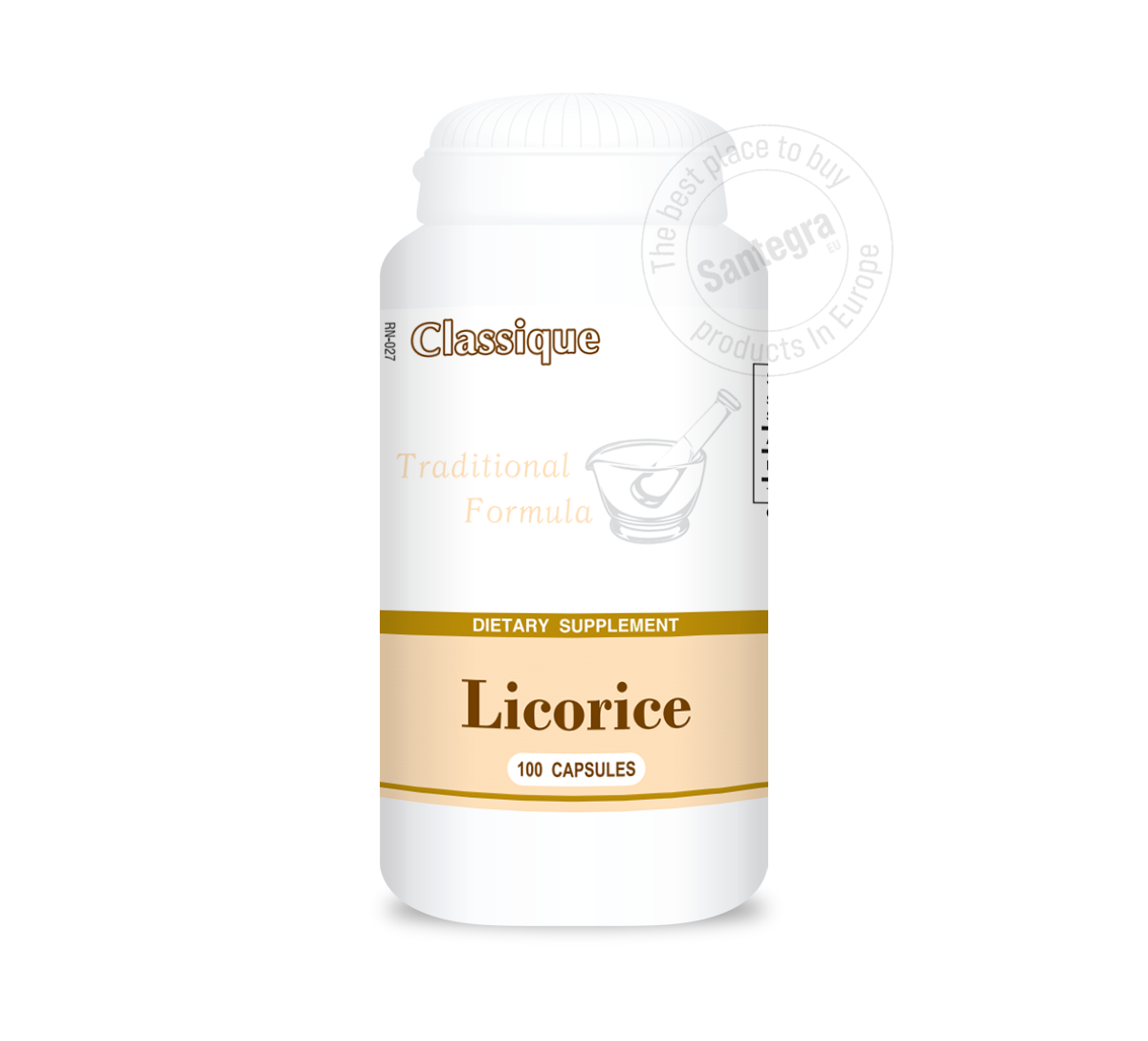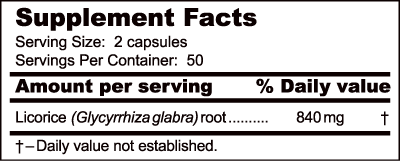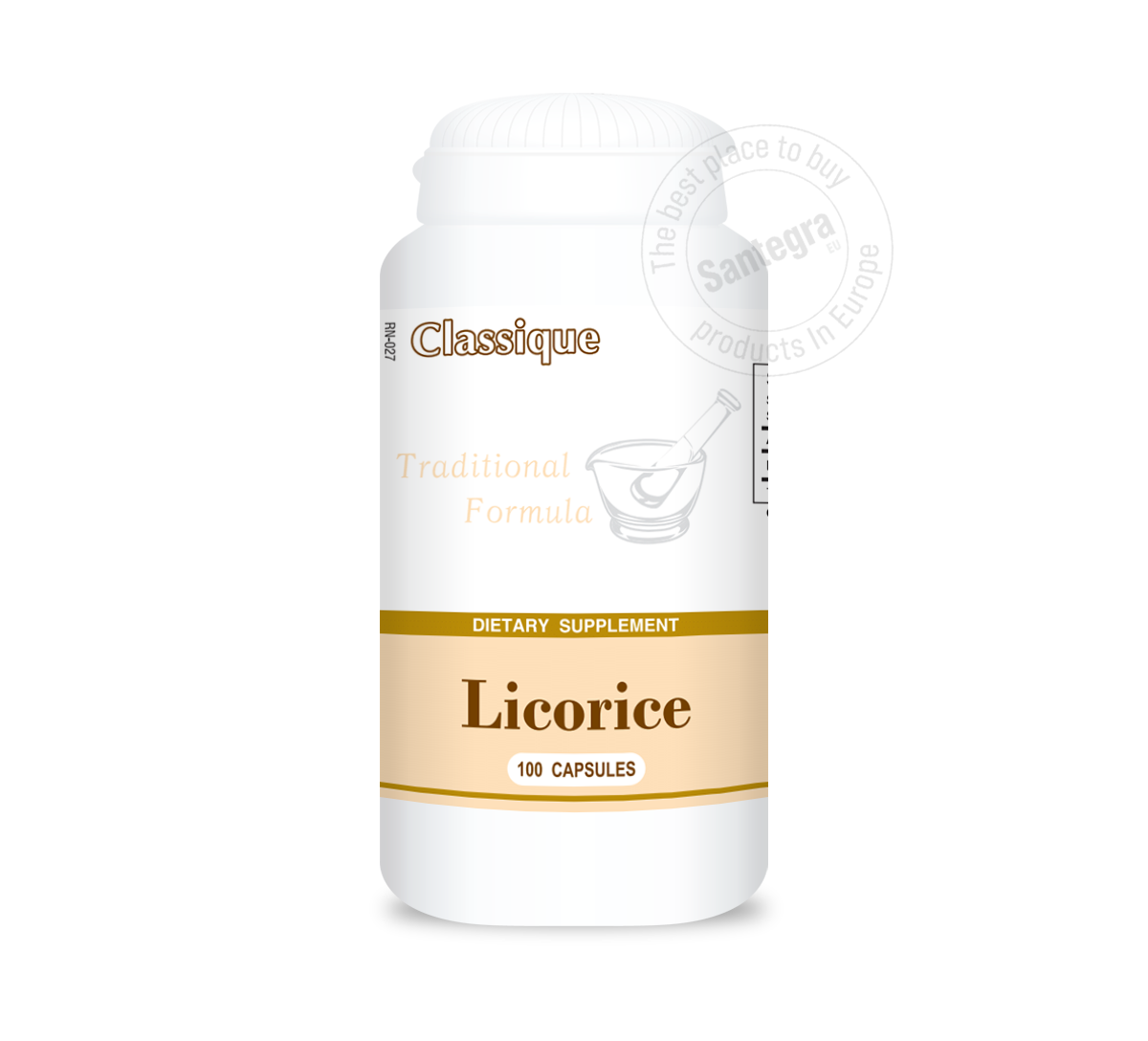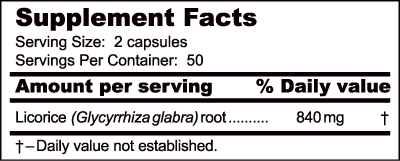Santegra®
Licorice (100)
Licorice (100)
Couldn't load pickup availability
Share


Product information
Details
Licorice is a natural product with unique properties containing licorice (Glycyrrhiza glabra) root.
The use of licorice dates back to ancient times. Its botanical name was derived from Greek words glukos – sweet and riza – root, because one of the active ingredients of licorice – glycyrrhizin is 50 times sweeter than sugar!
Licorice has been used in China for more than 5000 years. It was seen by many as an 'elixir of life', which increases vitality and energy level, slows the aging process. The ancient Romans were so confident in licorice’s healing properties that they carried licorice with them on their moves. They also believed it increased personal stamina. In the Eastern countries licorice was used as a tonic.
The main constituent found in licorice root is glycyrrhizin, there are also other triterpenoid saponins, flavonoids and isoflavonoids, coumarins, resins, gums, tannin, sugar, starch and a bitter principle.
Licorice is most known for its soothing effect on inflamed mucous membranes of the throat, lungs, stomach and intestines.
It has demulcent, soothing, anti-inflammatory, anti-spasmodic, and mild laxative properties. Licorice is adrenal cortex and pancreas stimulant.
Glycyrrhizin increases the activity of ciliated epithelium, ease expectoration. Licorice has long been known for its ability to relieve respiratory ailments (such as bronchitis, colds, and sore throats) due to its anti-inflammatory and expectorate action.
Licorice also appears to combat viruses by boosting the immune system. Glycyrrhizin stimulates the production of interferon – the natural antiviral defense of the body.
Glycyrrhizin has anti-ulcer and anti-inflammatory action. It is traditionally used when mucous membranes of the digestive tract are inflamed or damaged. It produces highly viscous mucus over the stomach and duodenum walls, thus protecting them from the irritation caused by gastric acid and different dangerous substances. (1)
Evidence from human clinical trials indicates that licorice can alleviate gastritis and ulcers and is just as effective at healing of stomach ulcers as some medicaments. (2)
Licorice has a liver-protective effect in vitro. The mechanism of hepatoprotection includes antioxidant activity, antiviral effect and the increased production of interferon and antibodies.
Clinical trials in China and Japan have demonstrated that glycyrrhizin, given intravenously as an isolated compound, can reduce elevated liver enzymes and reduce the risk of liver cancer in patients with active chronic hepatitis C. (3)
Licorice acts as a tonic and stimulant.
One of the important properties of licorice is its ability to enhance the effects of other herbs in the blend, to “harmonize” the ingredients. It is one of the reasons why licorice is used so widely in the folk medicine from the ancient times till now.
Supplement Facts
Per one capsule:
Licorice (Glycyrrhiza glabra) root – 420.0 mg.
Usage
As a dietary supplement take 2 capsules with a large glass of water three times daily with meals.
Contraindication
Individual intolerance.


